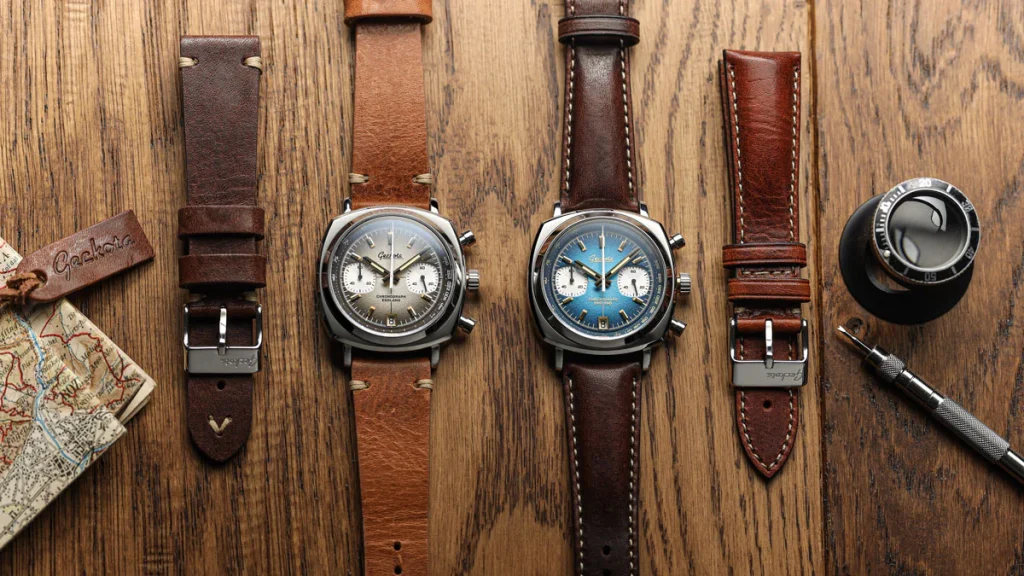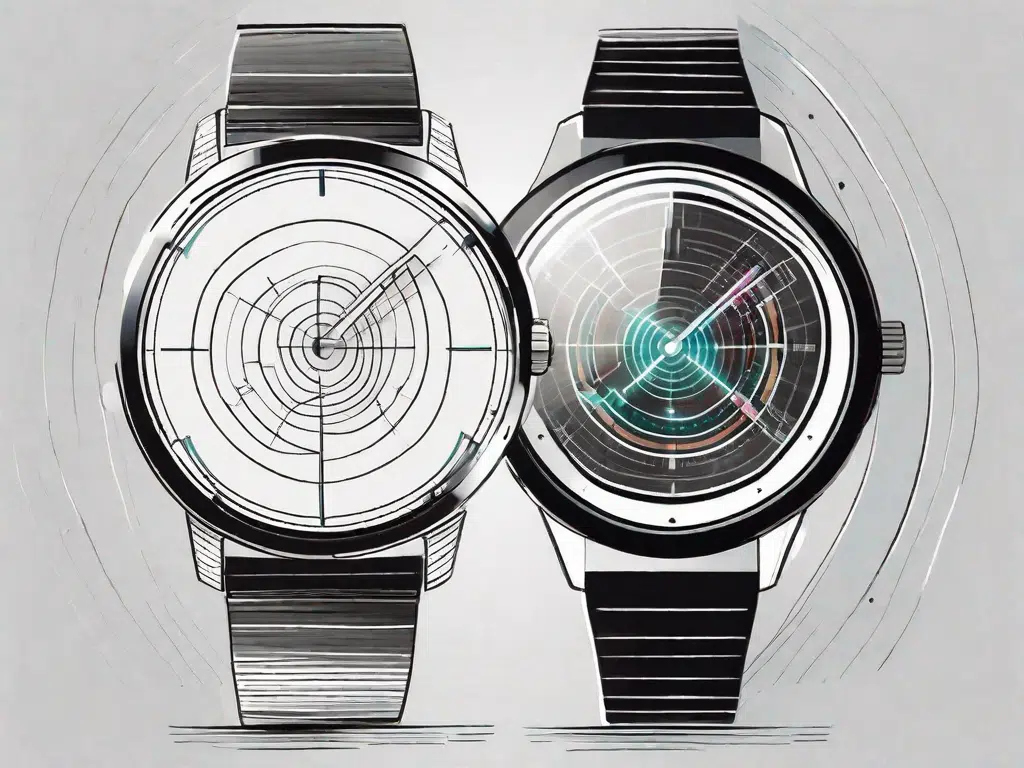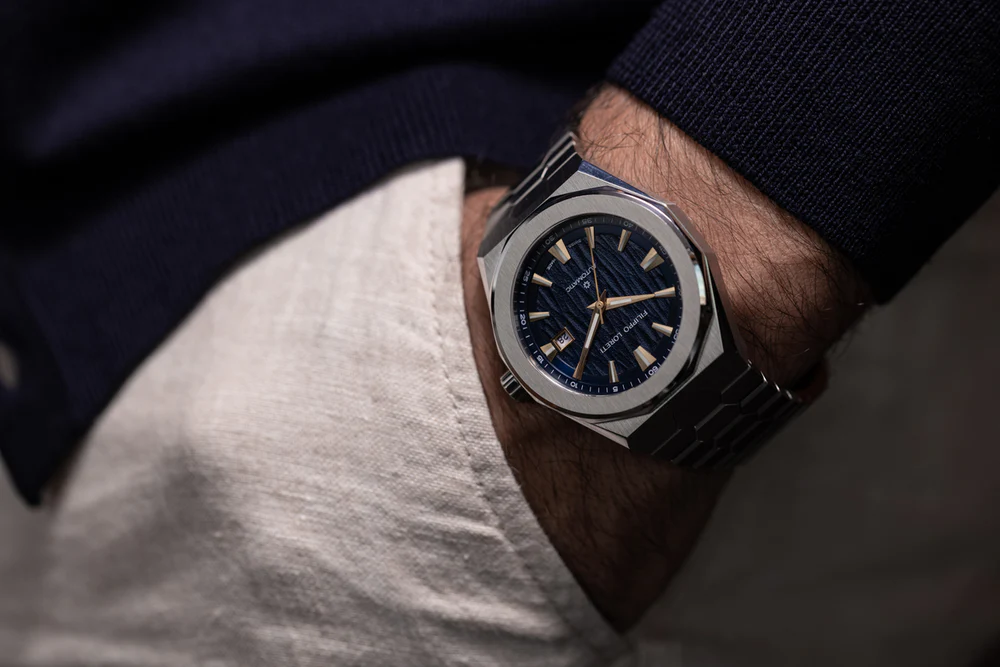Blog
Digital vs. Analog: Which Watch Style Fits Your Life?
When choosing a watch, one of the first decisions you’ll need to make is whether to opt for a digital or analog timepiece. Both styles have their own unique advantages, and the choice between them often comes down to personal preference, lifestyle, and the specific purpose you have for the watch. Understanding the differences between digital and analog watches, as well as their respective pros and cons, can help you select the perfect timepiece for your needs.
In this article, we’ll explore the key differences between digital and analog watches, their features, and which style might best suit your lifestyle.
1. Understanding Digital and Analog Watches
Before diving into the pros and cons, it’s important to understand what makes each style unique:
- Digital Watches: These timepieces display the time using digits, typically in a 12-hour or 24-hour format. Digital watches use an electronic movement powered by batteries or solar energy, and the time is usually shown on an LCD or LED screen. They often come with additional features like alarms, stopwatches, backlighting, and even GPS.
- Analog Watches: Analog watches feature traditional hour and minute hands (and sometimes a second hand) that move in a circular motion over a dial with numbered markers. They use mechanical or quartz movements to keep time and offer a classic, timeless aesthetic. Analog watches can also have additional features like date windows, chronographs, or rotating bezels.

2. The Pros and Cons of Digital Watches
Digital watches have come a long way in terms of functionality and design. Here are some of the key benefits and potential drawbacks of digital timepieces:
Pros of Digital Watches:
- Easy-to-Read Displays: One of the most significant advantages of digital watches is their ease of readability. The time is displayed in clear, large numbers, making it quick to glance at and read, especially in low-light situations. For people with visual impairments or those who just prefer a straightforward display, digital watches are a great option.
- Advanced Features: Digital watches often come equipped with advanced features, such as:
- Alarms for reminders or waking up.
- Stopwatch functions for athletes or anyone who needs to track elapsed time.
- Backlighting or illumination for clear visibility in the dark.
- Water resistance, often to greater depths compared to analog models.
- Smart features like fitness tracking, Bluetooth connectivity, and heart rate monitoring, especially in hybrid or smartwatch variants.
- Durability: Many digital watches are designed with ruggedness in mind. Sports and outdoor brands like Casio G-Shock and Suunto offer models that are shock-resistant, water-resistant, and built to withstand tough environments. These watches are ideal for adventurers, athletes, and anyone who needs a timepiece that can handle the elements.
- Affordable Options: Digital watches are generally more affordable than high-end analog watches, making them accessible to a broader range of budgets. Many budget-friendly brands offer highly functional digital watches with a host of features.
Cons of Digital Watches:
- Limited Aesthetic Appeal: While digital watches have evolved in terms of design, they often lack the timeless elegance and sophistication of analog watches. For those who appreciate the traditional craftsmanship of a watch or the classic appeal of a watch with hands, digital models might feel less refined.
- Battery Life Concerns: Although many digital watches come with long-lasting batteries, they still require battery replacements from time to time. With smartwatches and more advanced digital models, the need to charge frequently can be a hassle.
3. The Pros and Cons of Analog Watches
Analog watches, with their intricate designs and mechanical movements, have been a staple in watchmaking for centuries. Here’s why many people continue to gravitate toward this classic style:
Pros of Analog Watches:
- Timeless Design: The aesthetic appeal of analog watches is undeniable. The classic dial with moving hands has a timeless elegance that exudes sophistication. Whether you’re wearing it to a formal event, a business meeting, or as part of your everyday attire, an analog watch adds an air of class and refinement.
- Mechanical Movements: Analog watches can feature automatic or mechanical movements, which are powered by the movement of the wearer’s wrist or by winding. For watch enthusiasts, the mechanical movement is an art form, with intricate mechanisms and high craftsmanship on display. Many analog watches, particularly luxury models, are considered pieces of art and craftsmanship.
- Battery-Free Options: Mechanical analog watches do not rely on batteries. While quartz analog watches use a battery, many collectors prefer the automatic variety, which can run indefinitely as long as it is worn regularly. For those who want to avoid battery replacements, this is a major selling point.
- Longevity and Value: Analog watches—especially those from well-known brands like Rolex, Omega, and Patek Philippe—often retain or even appreciate in value over time. Many collectors view analog watches as an investment piece, making them desirable not just for their function but for their potential value growth.
- Battery Life: If you choose a quartz analog watch, you will find that battery life is generally far longer than the typical digital watch, lasting a year or more without needing replacement.
Cons of Analog Watches:
- Harder to Read Quickly: Analog watches, especially those with more intricate dials or smaller numbers, can be harder to read at a quick glance, especially in low-light environments. This makes them less convenient for people who want immediate, easy access to the time.
- Maintenance and Cost: Mechanical analog watches require more maintenance, especially if they are automatic or hand-wound models. Over time, mechanical movements may need servicing, which can be expensive. Analog watches, particularly luxury models, can also come with a higher price tag.
4. Which Watch Style Fits Your Life?
Now that we’ve explored the pros and cons of both digital and analog watches, how do you decide which one is the best fit for your lifestyle? Here are some factors to consider:
1. Your Style and Aesthetic Preferences:
If you prefer a sleek, modern look and appreciate the advanced features digital watches offer, a digital watch may be the right choice for you. Digital watches often have a sporty, casual feel, while analog watches carry a classic, sophisticated appeal.
2. Functionality and Use:
Consider what you’ll be using the watch for. If you need a watch for sports, outdoor activities, or daily wear with practical functions, a digital watch may suit you better. Features like alarms, stopwatches, and water resistance make digital watches a great tool for active individuals.
If you’re seeking a watch that is more about style and craftsmanship, an analog watch could be the better fit. High-end analog watches can also serve as heirlooms, potentially increasing in value over time.
3. Comfort and Convenience:
If you need a watch that’s easy to read at a glance and lightweight, a digital watch may offer more convenience. For people who travel or work in fast-paced environments, digital watches are often more practical.
However, if you enjoy the tactile experience of winding or wearing a mechanical watch, or if you value the tradition of analog timepieces, then the elegance and enduring quality of an analog watch will suit your needs.
4. Budget:
Budget also plays a significant role. Digital watches are generally more affordable, with many options available in a variety of price ranges. Analog watches, especially luxury models with automatic movements, can be significantly more expensive, but they are often seen as investments.

5. Conclusion
The choice between digital and analog watches ultimately comes down to personal preference and the role the watch will play in your life. Digital watches are perfect for those seeking practicality, advanced features, and modern aesthetics, while analog watches offer timeless elegance, craftsmanship, and a classic appeal. Whether you’re in the market for a rugged outdoor watch or a sophisticated dress watch, both styles have their place in the world of horology.
When selecting a watch, consider your lifestyle, aesthetic preferences, and specific needs. Ultimately, both digital and analog watches have their own unique allure, and both can make a stylish and functional addition to your collection.

